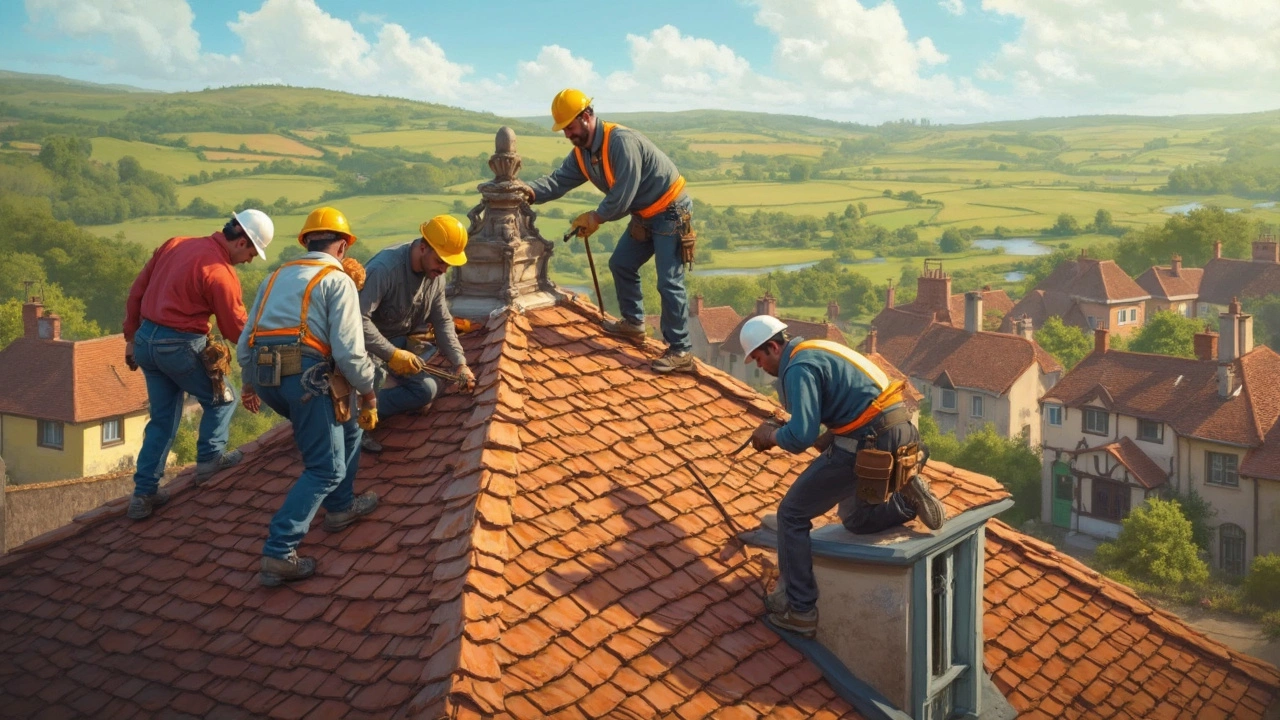Roofing Types Explained: Choose the Right Roof for Your Home
When you start thinking about a new roof, the first question is usually, "What kind of roof should I get?" The answer isn’t one‑size‑fits‑all. Different roofing types suit different budgets, climates, and style preferences. Below you’ll find a quick rundown of the most popular roofing options, what makes each tick, and when they’re the best fit.
1. Asphalt Shingles – The Everyday Favorite
Asphalt shingles dominate the market because they’re cheap, easy to install, and come in a ton of colours. They work well in most climates, but they don’t last as long as metal or slate – typically 15‑25 years. If you’re looking for a budget‑friendly choice that still looks decent, these are a solid pick.
2. Metal Roofing – Durable and Energy‑Smart
Metal roofs are lightweight, fire‑resistant, and can last 40‑70 years with proper care. They reflect sunlight, which helps keep your house cooler in summer and can lower energy bills. The upfront cost is higher than asphalt, but the long‑term savings and durability often make up for it. Ideal for homes in harsh weather or anyone wanting a low‑maintenance roof.
3. Tile and Concrete Roofs – Classic Mediterranean Look
Clay or concrete tiles give a distinct, timeless look and are great at resisting fire and rot. They’re heavy, so the house’s structure must be able to support the extra weight. Expect a lifespan of 50‑100 years, but the price tag is steeper than both asphalt and metal. Perfect for warmer climates where the tiles can stay cool.
4. Slate – Luxury with Longevity
Slate roofs are the premium option: they’re stunning, fire‑proof, and can last well over a century. The downside? Slate is pricey, heavy, and requires skilled installers. If you want a roof that becomes a family heirloom and you have the budget, slate is hard to beat.
5. Wood Shakes and Shingles – Natural Charm
Wood roofing offers a rustic appearance that many homeowners love. It’s softer than tile or metal, so it can be prone to moss, rot, and fire unless treated. With regular maintenance, wood roofs can last 20‑40 years. They work best in dry climates and for homes where a natural look is a priority.
6. Flat Roofs and Green Roofs – Modern and Eco‑Friendly
Flat roofs are common on commercial buildings but also appear on modern homes. They’re easy to access for installations like solar panels. However, they need a good waterproof membrane and regular inspections to prevent leaks. Adding a green roof—plants on top—improves insulation and reduces storm‑water runoff, but it adds weight and cost.
Choosing the right roofing type boils down to three things: budget, climate, and style. If you’re on a tight budget, asphalt shingles are the go‑to. If you need something that lasts for decades with low upkeep, metal or tile are worth the investment. For a luxury look that could last a lifetime, slate is unbeatable. And if you love eco‑friendly solutions, a green flat roof might be the perfect fit.
Before you commit, get a qualified roofer to assess your home’s structure and local weather patterns. A proper installation can make a huge difference in how long any roof lasts. Remember, a good roof protects your home, saves energy, and adds curb appeal – it’s worth spending a little extra time picking the right one.

Roof Workers: Who Are They and What Do They Do?
Mar 24, 2025, Posted by Damon Blackwood
Ever wondered what those folks up on the roof are called? They're known as roofers, and they play a crucial role in building and maintaining the roofs over our heads. This article explores different types of roofing specialists, what they do, and some interesting facts about the roofing industry. Whether you're curious about their job or considering a career in roofing, here's the lowdown.
MORESEARCH HERE
Categories
TAGS
- foundation repair
- commercial construction
- construction
- new builds
- home improvement
- home renovation
- bathroom renovation
- construction materials
- residential construction
- building codes
- home foundation
- building types
- renovation tips
- building materials
- construction differences
- contractor
- foundation cracks
- home construction
- architectural services
- foundation issues